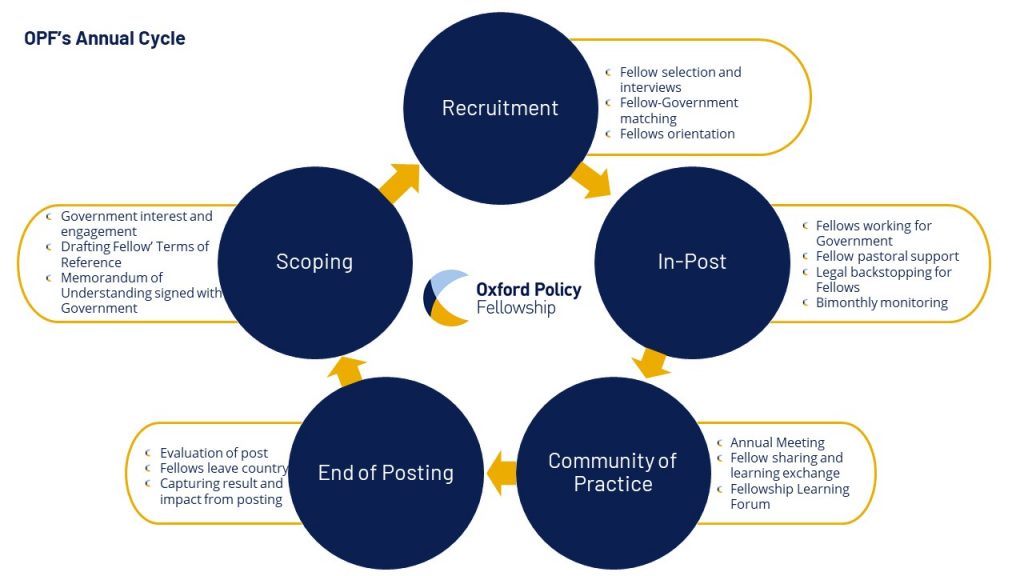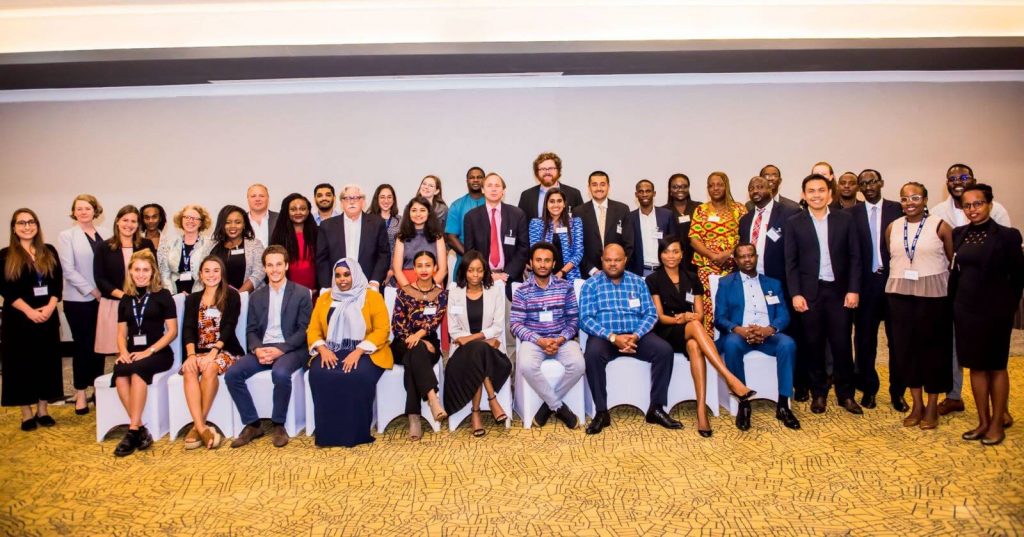As a responsive organisation, the Oxford Policy Fellowship (OPF) partners with governments in low- and middle-income countries in order to provide legal assistance in addressing their identified needs.
We undertake a rigorous selection process to identify Fellows, supporting partner governments as they select the Fellows they require. Throughout the Fellows’ placements, we provide pastoral support and legal technical resources to Fellows as needed ensuring that Fellows’ contributions to their host ministries are maximised as far as possible. We host a community of practice in order to create a network of learning between law and public policy professionals. Crucially, we continuously monitor and evaluate our work to adjust and improve our model.
OPF consists of three cornerstones: posting Fellows; facilitating the community of practice; and researching embedded technical assistance and the role of law in achieving the Sustainable Development Goals. These pillars combine to contribute to improving governments’ capacity to and to strengthening national policies and legislative frameworks.
Fellows
Each year OPF posts lawyers to low- and middle-income country ministries where they work for two years. The governments develop Terms of Reference for their Fellows and these outline the tasks the Fellows work on during their two year postings. This way, we ensure that the support from the Fellows is truly demand-driven and is responsive to local priorities; the Fellows work as civil servants alongside their local colleagues, creating a platform of reciprocal capacity development. The Fellows support the governments on a range of different legal and policy work, such as:
- Reviewing laws and policies
- Drafting contracts
- Carrying out policy research
- Participating in negotiations
In my experience, what makes us in OPF particularly unique is the fact that it is partner-led. We are not like other development partners where we go to other countries and say this is what we need to be doing. We say to the governments ‘what do you need? What support is there in need of by the Ministry?’ That means that everything is very much tailored to what is required by the manager and the colleagues within the team.
Kush Amin, Fellow 2017-2019, Ministry of Finance, Uganda
Community of practice
The OPF network or community of practice aims to create a platform for learning programmatic lessons and exploring current issues related to embedded technical assistance and the interplay between law and policy. The key aspects of the network are our Annual Meeting and our Fellowship Learning Forum. The Annual Meeting is a unique space for bringing together our Fellows, Government Partners and experts in order to learn, network and discuss current issues. The Fellowship Learning Forum bring together current and former Fellows quarterly to learn from each other’s experience and to explore key issues.
The Oxford Policy Fellowship network is useful for us because it does not only provide Fellows in-country but also creates a network between different country governments. Through the programme we hope to eventually have partnerships with other countries, in order to capitalise on the different experience each of us has had with the Fellows. Nasteho Saleh, Director of Legal Affairs, Ministry of Ministry of Economy and Finance in charge of Industry, Djibouti
Research
Since OPF was established five years ago, we have witnessed the key role that law plays in achieving sustainable development. We have also noticed the advantages that low- and middle-income country governments that LMICs government gain from having embedded technical assistance. Both these areas require further investigation and OPF will explore the following two topics:
- The different types of technical assistance and their effectiveness in supporting the development of low- and middle-countries LMIC policy, legislation and capacity
- Legal frameworks that support for the achievement of the Sustainable Development Goals

